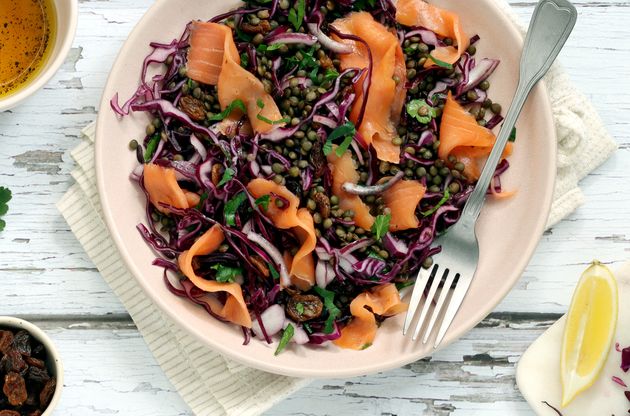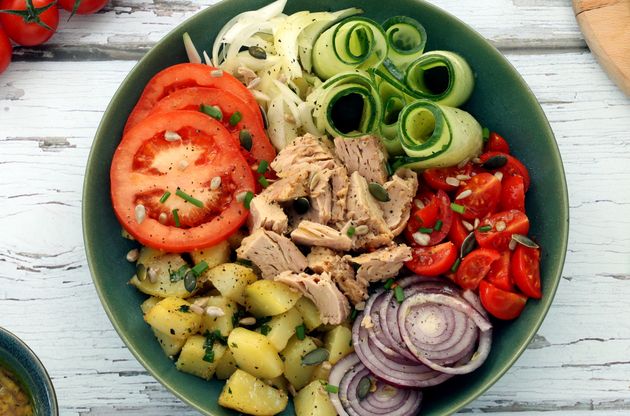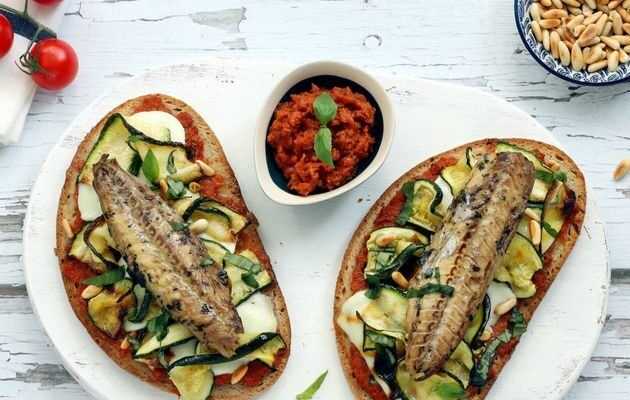To hear some sad spirits, fish would be (too) expensive, not easy to prepare and its consumption despite common sense would harm our oceans. In order to challenge these preconceived ideas, let's take stock of this food with exceptional taste and nutritional qualities, to show you that there are ways to eat fish, better, respectfully, and without having to break the bank. Quality and responsibility can go hand in hand, the proof!
(Article in partnership with Petit Navire)
Fish is (too) often perceived as an expensive and complicated food to prepare. In addition, in recent years, while we have become aware of the importance of varying our diet and in particular our protein sources by giving more weight to fishery products, we have also heard that resources are sometimes threatened, victims overfishing, methods that damage the seabed, and alter marine life in general.
So to get a clearer picture, let's take stock of these various and varied obstacles, in order to be able to consume fish easily, better, without harming either your health or the environment.
In terms of nutrition, which fish to favor?
Consuming fish allows you to diversify your protein intake by adding iodized, digestible and omega-3 products to the menu, for example. Eating fish regularly is particularly beneficial for the functioning of cognitive functions, and the variety on offer is such that one can also choose and not always turn to breaded squares.
Three tips for better consuming fish on the nutritional side:
- Vary the species, do not always eat the same fish, adapt your consumption according to the season for fresh fish, and be sure to mix small fish such as sardines (canned is perfect), medium fish such as sea bream, mackerel , trout… and big fish like tuna.
- Vary the preparation: fresh fish or canned fish? Both without worry! Always have a few cans of mackerel, tuna, sardines in your cupboard, an easy way to improvise a quick and healthy meal with quality protein. And do not deprive yourself of going to the fishmonger or to the market to eat from time to time a fresh and seasonal fish that does not come from the end of the world.
- Watch for labels that guarantee a level of sustainability for your fish. Responsible approach, MSC, ASC… for reasoned consumption, and fishing that manages its resources (but we will come back to this later).
Good to know : If you eat canned sardines while also eating the bone, for example, you supplement your intake of protein, vitamin B12, omega3, and the bone provides calcium. It is recommended to eat one can per person (i.e. roughly 100 g). If you like to eat "big" fish (tuna, salmon), then it is often advisable to limit yourself to once a week, which is good enough to be able to vary the pleasures.
Eat fish without harming our oceans, ok but how?
As we now know, certain natural resources are not inexhaustible, far from it. With regard to fish, it is a question of catching the right quantity, so that the species can renew themselves – in particular as regards the tuna -, and in addition to preserve the maritime ecosystem thanks in particular to methods of fishing less aggressive. But not only ! Fish stocks are also to be taken into account, for example.
This is what the MSC label, Marine Stewardship Council, supported by WWF among others, and which affixes a small blue label on many respectful products. This means responsible fishing, reasoned with a view to sustainability, so that you can enjoy good fish for as long as possible!
To note : Since 2016, Petit Navire has joined the “SeaChange” sustainable development program. With a first level already reached at 79% at the end of 2020, the brand is committed to sourcing 100% in the long term with MSC certified tuna or from a responsible fishery, that is to say registered in a program. improvement to obtain the MSC label. The idea is therefore to source according to the renewal potential of the resource, so as not to deplete it through overfishing.
In addition, at Petit Navire, we take care to diversify the varieties of the same fish. For example, in the case of tuna, the offer uses yellowfin tuna, but also skipjack tuna (whose resources do not suffer from any threat), albacore tuna, bigeye … in order to respect the available fishing resources. It is in this that by observing whether the products you consume are labeled, that you can participate in a virtuous process while enjoying yourself!
Even farmed fish can be eaten better!
And if you are a fan of smoked fish such as salmon or trout so trendy on our plates lately, know that Petit Navire offers fish from farms labeled "ASC responsible aquaculture", important for trout and salmon so often controversial, plus a wide choice of smoked salmon certified without antibiotics. The ASC label ensures in particular fish raised with respect for the environment, producers and local communities "
No, eating fish doesn't cost a kidney!
Consuming better for some consumers also means being careful with your wallet. And in budgetary terms, fish can quickly add up to the bill. So, how can you vary your diet, eat quality products and not feel like you're emptying the bank? If you live not far from the sea, the price of fish is often less of a problem than if you live in the mountains or in the Paris region. But not everyone is fortunate enough to be able to stock up on “bottom of the boat” or go fishing for themselves.
Dieticians are adamant that canned fish makes it possible to eat fish that is good for health, while remaining within the framework of ultra reasonable expenses.
And now, in the kitchen!
Now you have no excuse, so what if you cook easy recipes to test these virtuous products? We have selected three very simple and inexpensive, you will love it!


